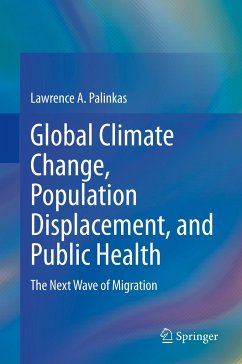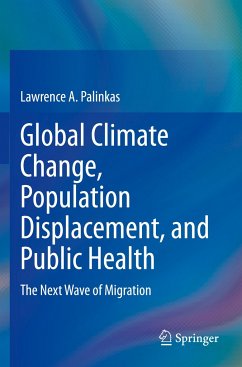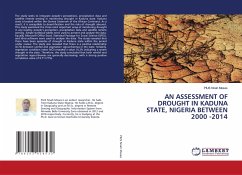
Climate Change, Variability and Human Health Protection Policy Options
Spatial-Temporal Trends and Health Adaptation on Climate Change and Variability Linked Malaria Epidemics,Kenya Highlands
Versandkostenfrei!
Versandfertig in 6-10 Tagen
32,99 €
inkl. MwSt.

PAYBACK Punkte
16 °P sammeln!
According to the 2007 Intergovernmental Panel for Climate Change (IPCC), changes in global mean temperature is now projected to increase by 2 °C 4 °C above pre-industrial levels over the next two decades. Further, the 2007/08 UNDP report on climate change noted that climate change is likely to have far bigger effects on health in developing countries, which are already burdened with other serious health concerns, and are in need of financial and technical assistance to develop adaptive strategies to temperature variations. The report added that reducing morbidity and mortality related to cli...
According to the 2007 Intergovernmental Panel for Climate Change (IPCC), changes in global mean temperature is now projected to increase by 2 °C 4 °C above pre-industrial levels over the next two decades. Further, the 2007/08 UNDP report on climate change noted that climate change is likely to have far bigger effects on health in developing countries, which are already burdened with other serious health concerns, and are in need of financial and technical assistance to develop adaptive strategies to temperature variations. The report added that reducing morbidity and mortality related to climate change in these countries will be the global community s defining challenge as it faces one of the biggest known threats to health and human survival. This monograph presents analysis on the actual impacts of climate change and variability on malaria epidemics in the highland districts of Kenya (East Africa) and presents policy options necessary for mitigation,risk management and adaptation. It establishes that more finite data of zone bands of mean altitude range not more than 200M is most appropriate in defining precise effects of climatic factors on malaria.












